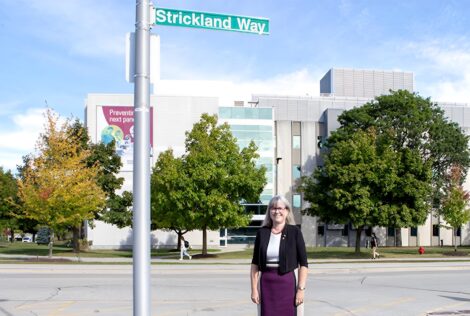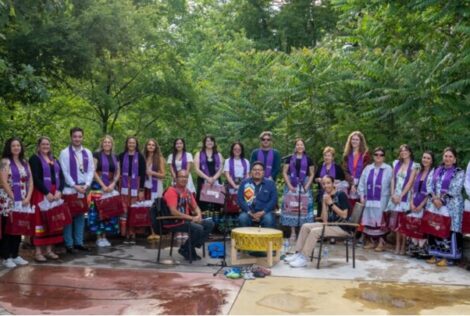
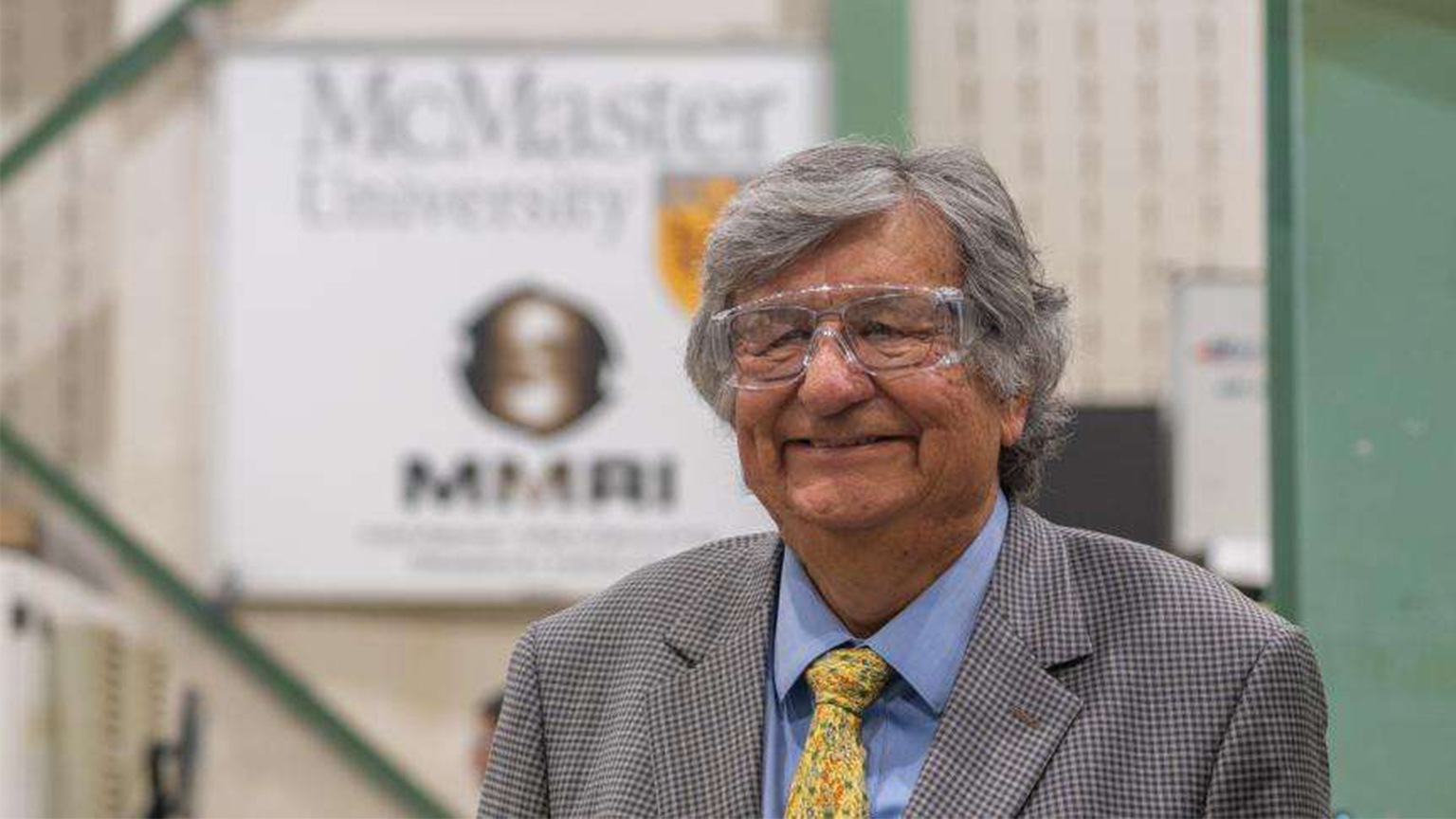
Distinguished alumnus Barry Hill, who received an honorary doctorate degree from McMaster University at spring convocation, is establishing The William Barry Hill Scholarship to support upper-year level Indigenous engineering students.
“With your training and your knowledge, you are the enablers of society. You are the ones that are going to make things happen.”
Barry Hill, BEng (Class of ’66) and MEng (Class of ’68), humbly accepted his honorary doctorate degree at spring convocation on Friday.
He passed on “learnings from life’s highway” to the Class of 2022 and encouraged the new members of McMaster’s worldwide alumni community to lean into their innate wonder and excitement.
“Embrace change, grow, learn and expand your abilities to cope with the new world, but don’t lose that passion, that interest, that you started with,” he said.
It’s with this dedication to support engineering students that Hill launches a new scholarship.
The William Barry Hill Scholarship will be established in appreciation of the impact McMaster has made on Hill’s life and career, and in recognition of his Mohawk heritage.
An annual scholarship of $8,000 will be awarded to an Indigenous undergraduate student in their third year or above in the Faculty of Engineering who attains high averages.
I think it’s important to support people in achieving their dreams. We all come to places like this filled with hope.
As the years go by and expenses increase, he explained, it becomes more difficult for students to chase their dreams. This money will support those “serious” about engineering, he said – the students who share the deep desire and drive to become an engineer.
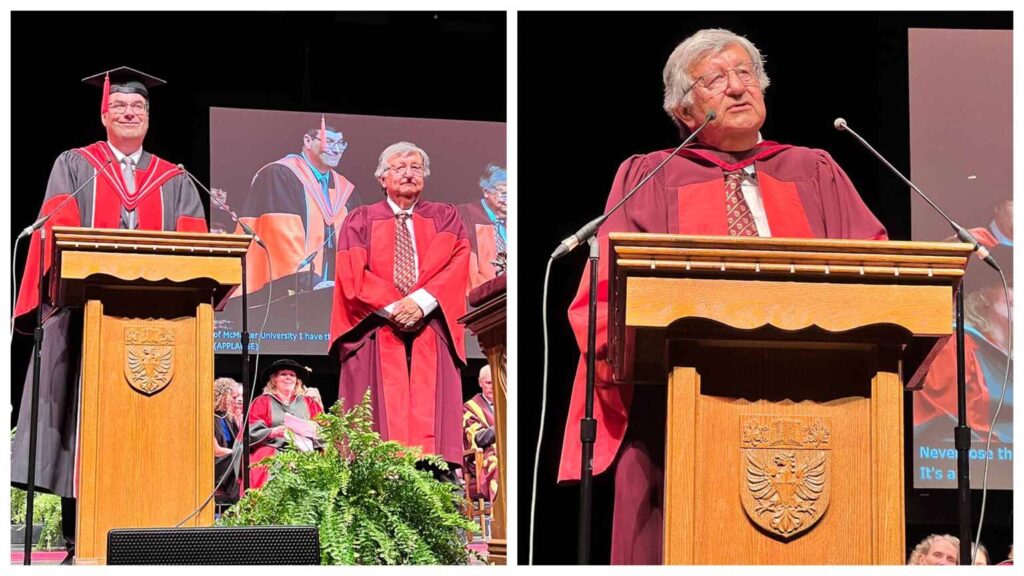
The insightful leader, who had a 26-year long career at Ontario Hydro before starting Hillsfield Farms with his wife, has been instrumental in innovations across Ontario’s agricultural sector.
But Hill’s parents had hoped he would become a veterinarian. Hill laughed as he explained that he was a small child, and the cows he would need to care for were not.
His heart instead gravitated to machines. He recalled growing up in Six Nations of the Grand River, which at the time had only 10 mailboxes on his concession, and waiting outside to watch airplanes from nearby training bases during WWII.
“There were training bases all around our area… They had these flat fields with training pilots and planes would fly over all the time,” he said. “I would sit out and wait. My dog and I would wave at them and they’d wave back.”
Two blocks away, bombers would take to the sky to practice, and he’d watch those too.
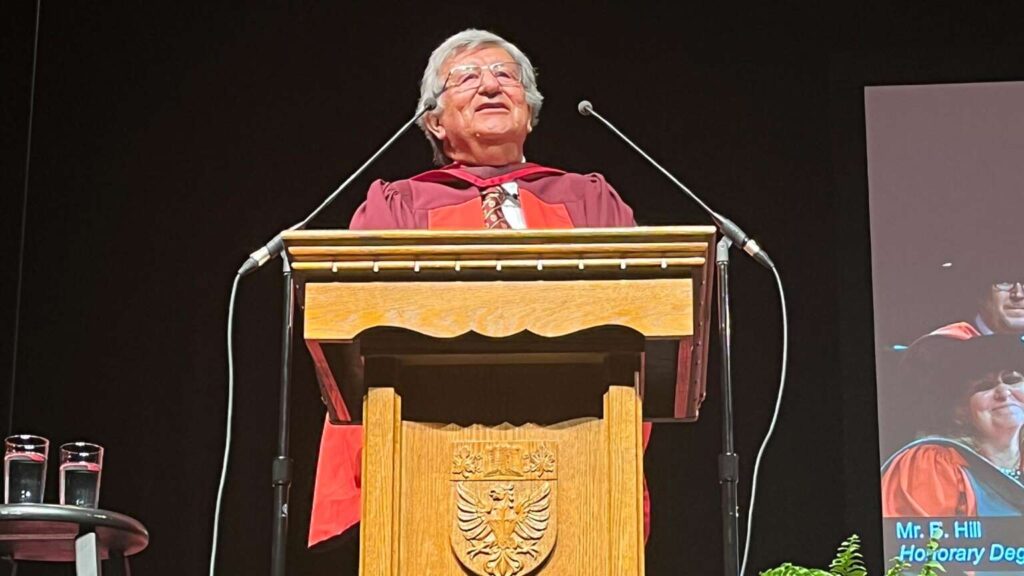
His grandmother recognized the burning fascination in Hill to tinker and create, something he shared with his grandfather, who was a carpenter.
She would tell Hill: “you should be an engineer.”
When the Sears mall opened in east Hamilton – now Eastgate Square – Hill flipped through the catalogue, analyzing the cupboards; he drew out a kitchen for his parents, with his schoolteacher mother guiding him on how to place a vanishing point.
“I had time to dream,” he said. “Nobody said I couldn’t or shouldn’t.”
Read more about Hill’s story – from its beginnings on an Ohsweken farm, through decades working as a professional engineer in the electricity sector and promoting agribusiness in the Six Nations community, and beyond.
While everyone’s story is unique based on their circumstances, Hill said, there is one element that ties our journeys together.
Regardless of who we are or where we come from – race, colour, creed – one thing that we all share is hope. We all have it within us: a desire for something better. Hope is what unites us.
The universal challenge we face, he said, is engaging and understanding the world around us.
That’s where Indigenous knowledge comes into play – “based on experience and observation and knowledge and appreciation of the environment in which you find yourself.”
Today’s environment, he said, not only includes the natural, but layers of additional knowledge and social complexity.
He described engineers as the “enablers” and called on them to use traditional knowledge and experience to contribute to society.
“Engineering education gives you the additional knowledge of taking that understanding and using scientific principles to predict outcomes that you may not have experienced before. And that’s the really exciting part about it: combining those two aspects. One doesn’t preclude or supersede the other,” he said.
60-year anniversary at McMaster
This year, 2022, marks the 60-year anniversary of Hill’s arrival at McMaster University. He described how the campus has changed since the days where the world “dropped off” after the John Hodgins Engineering building.
Along with his bachelor’s and master’s degrees, the latter under professor Jim Siddall, the campus factored into some of Hill’s great life milestones: there was once a Greco-Roman sunken garden and reflecting pools where Hill and his late wife, Margaret (BScN ’66) , had their wedding pictures taken.
“I had joy in my life at Mac,” he said. “I met some long-lasting friends, and the university prepared me well…I’m hoping that the [William Barry Hill Scholarship] helps.”
Hill previously received an honorary doctorate degree from the University of Guelph and has championed work on food sustainability and security. He was inducted into the Ontario Agricultural Hall of Fame in recognition of his influence on forming the First Nations Agri Group Cooperative, and further leadership with the Ontario Soil and Crop Improvement Association, Brant County Federation of Agriculture, the Six Nations Farmers’ Association and a founder of the IGPC ethanol plant in Aylmer, Ont.
Hill, the first Indigenous lecturer at Six Nations Polytechnic, reflected on his life journey during his convocation address with a latin phrase: alis volat propriis.
He flies by his own wings.
“The time has come for you to leave the nest. Get out there and fly by your own wings,” Hill shared with the graduates.
The honorary doctorate honour comes six years after being inducted in the McMaster Alumni Gallery.
“It’s wonderful to receive the recognition in that way,” he said. “In some ways, it validates my life to this point and to be recognized by your own alma mater is special.”
He advised Indigenous students to continue moving forward in pursuit of their goals and rise above those who can’t connect with their dreams.
“Don’t be discouraged,” he said. “If you have an interest in science, don’t be discouraged by what people say.”


